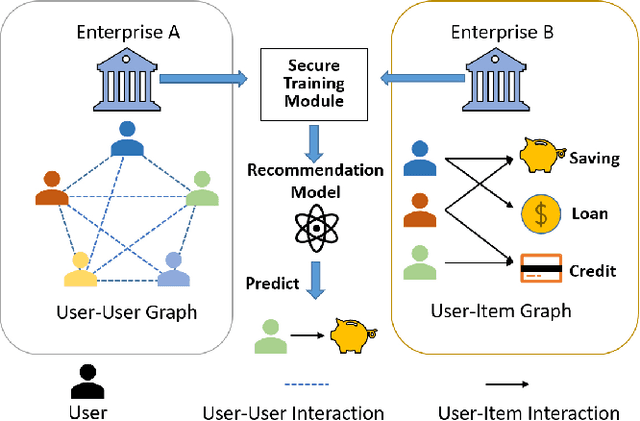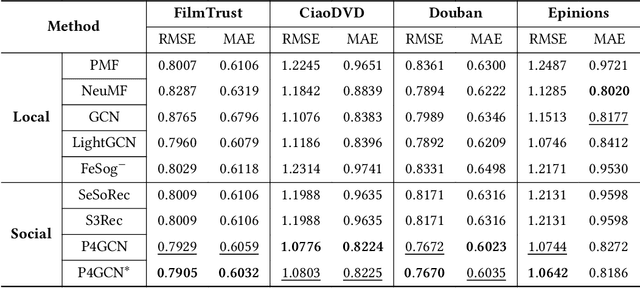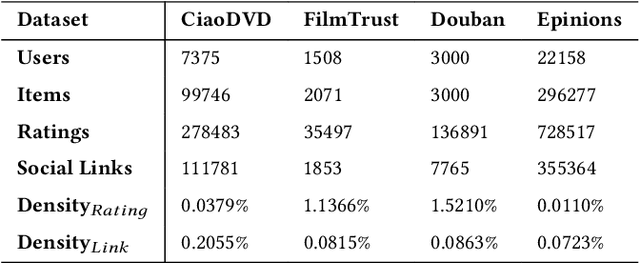Wanwan Wang
P4GCN: Vertical Federated Social Recommendation with Privacy-Preserving Two-Party Graph Convolution Networks
Oct 16, 2024



Abstract:In recent years, graph neural networks (GNNs) have been commonly utilized for social recommendation systems. However, real-world scenarios often present challenges related to user privacy and business constraints, inhibiting direct access to valuable social information from other platforms. While many existing methods have tackled matrix factorization-based social recommendations without direct social data access, developing GNN-based federated social recommendation models under similar conditions remains largely unexplored. To address this issue, we propose a novel vertical federated social recommendation method leveraging privacy-preserving two-party graph convolution networks (P4GCN) to enhance recommendation accuracy without requiring direct access to sensitive social information. First, we introduce a Sandwich-Encryption module to ensure comprehensive data privacy during the collaborative computing process. Second, we provide a thorough theoretical analysis of the privacy guarantees, considering the participation of both curious and honest parties. Extensive experiments on four real-world datasets demonstrate that P4GCN outperforms state-of-the-art methods in terms of recommendation accuracy. The code is available at https://github.com/WwZzz/P4GCN.
EFMVFL: An Efficient and Flexible Multi-party Vertical Federated Learning without a Third Party
Jan 17, 2022Abstract:Federated learning allows multiple participants to conduct joint modeling without disclosing their local data. Vertical federated learning (VFL) handles the situation where participants share the same ID space and different feature spaces. In most VFL frameworks, to protect the security and privacy of the participants' local data, a third party is needed to generate homomorphic encryption key pairs and perform decryption operations. In this way, the third party is granted the right to decrypt information related to model parameters. However, it isn't easy to find such a credible entity in the real world. Existing methods for solving this problem are either communication-intensive or unsuitable for multi-party scenarios. By combining secret sharing and homomorphic encryption, we propose a novel VFL framework without a third party called EFMVFL, which supports flexible expansion to multiple participants with low communication overhead and is applicable to generalized linear models. We give instantiations of our framework under logistic regression and Poisson regression. Theoretical analysis and experiments show that our framework is secure, more efficient, and easy to be extended to multiple participants.
 Add to Chrome
Add to Chrome Add to Firefox
Add to Firefox Add to Edge
Add to Edge